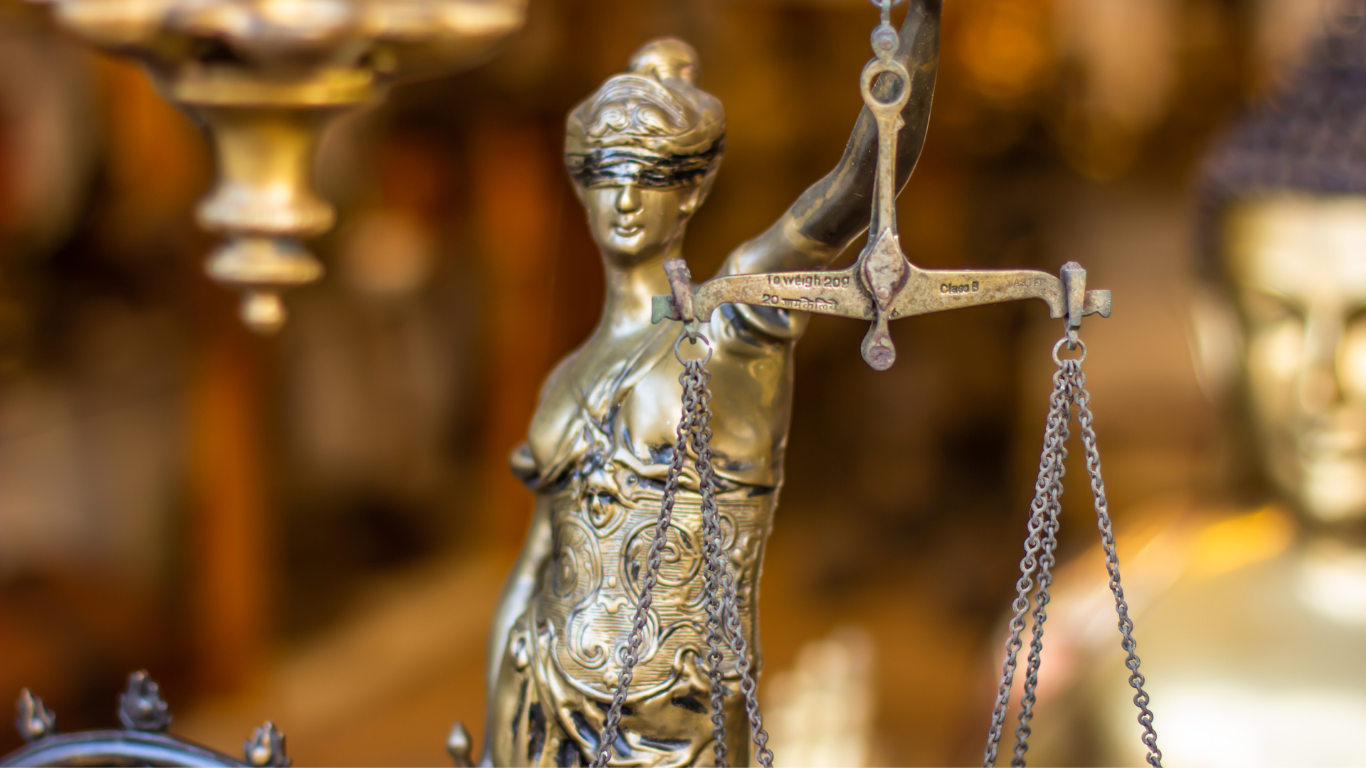
The Latin phrase ubi jus ibi remedium translates to “where there is a right, there is a remedy.” It’s a cornerstone of legal systems worldwide, promising that if someone’s rights are violated, the law will provide a way to fix the harm. Imagine you’re cheated in a deal or injured by someone’s negligence—this principle ensures you can seek justice, whether through money, an apology, or other means. It’s about fairness, holding people accountable, and protecting what’s rightfully yours. From ancient Roman law to modern courts, this idea shapes how we resolve disputes and uphold justice. In this article, we’ll explore what ubi jus ibi remedium means, its history, how it works in practice, and why it matters today. We’ll also look at its limits and real-world examples to show how it supports people seeking justice. By the end, you’ll see why this principle is vital for a fair society.
What Does Ubi Jus Ibi Remedium Mean?
Ubi jus ibi remedium is a legal promise: if your rights are wronged, the law offers a solution. It means no one should suffer harm without a chance to make things right. For example, if a neighbor damages your property, this principle ensures you can seek compensation or repairs. It applies to all kinds of rights—property, personal, or contractual. The idea is to restore balance, either by fixing the harm or punishing the wrongdoer. Courts use this to decide cases, offering remedies like money, court orders, or injunctions. It’s a foundation of justice systems, ensuring people aren’t left helpless when wronged. Without it, rights would be meaningless, as there’d be no way to enforce them. This principle encourages trust in the law, knowing it backs you up when your rights are at stake.
The History of Ubi Jus Ibi Remedium
The phrase ubi jus ibi remedium comes from Roman law, where fairness was a core value. Ancient Romans believed that if someone had a legal right, the system should provide a way to protect it. This idea spread through Europe, influencing English common law in the Middle Ages. A famous case, Ashby v. White in 1703, cemented it in English law when a voter was wrongly denied his right to vote and the court ruled he deserved a remedy. Over time, it became a universal principle, adopted by legal systems worldwide, from India to the U.S. It’s now a bedrock of modern justice, ensuring courts can address wrongs, whether big or small. Its longevity shows its power—people have always valued the idea that rights come with solutions, no matter the era or place.
Roots in Roman Law
Roman law laid the groundwork for ubi jus ibi remedium. Romans saw law as a tool for fairness, ensuring citizens could seek justice for wrongs like stolen property or broken contracts. Their legal codes, like the Twelve Tables, promised remedies for violated rights. This focus on justice influenced later systems, spreading the idea that rights and remedies go hand in hand. Roman courts set a model for balancing harm with solutions, a legacy that still shapes law today.
Influence on Common Law
In medieval England, ubi jus ibi remedium took root in common law. Courts began ensuring remedies for rights violations, like in Ashby v. White, where a voter got compensation for being blocked from voting. This case showed the principle’s flexibility, applying to new rights as societies evolved. English judges used it to expand justice, making sure no one was left without a remedy, strengthening trust in the legal system.
How Ubi Jus Ibi Remedium Works in Practice
In real life, ubi jus ibi remedium guides courts to provide solutions when rights are violated. If someone breaches a contract, you can sue for damages. If you’re injured in an accident, you can claim compensation. Courts offer remedies like money, injunctions to stop harmful actions, or specific performance to enforce agreements. The principle ensures the remedy fits the harm—minor wrongs get small fixes, while serious ones might mean big payouts or jail time. It applies in civil cases, like property disputes, and sometimes criminal ones, where victims seek restitution. Judges use it to uphold fairness, ensuring no right goes unprotected. By offering solutions, it discourages wrongdoing and gives people confidence to stand up for their rights, knowing the law will back them.
Types of Remedies
Remedies under ubi jus ibi remedium vary by case. Compensatory damages pay for losses, like medical bills after an injury. Injunctions stop harmful actions, such as blocking a neighbor from building on your land. Specific performance forces someone to fulfill a contract, like selling a promised house. Restitution returns stolen or misused property. Each remedy aims to restore fairness, tailored to the specific right violated, ensuring justice feels tangible and effective.
Role of Courts
Courts are key to making ubi jus ibi remedium work. They hear cases, weigh evidence, and decide remedies. Judges ensure the solution matches the harm, using laws and past cases as guides. For example, in a defamation case, a court might order an apology or damages. By enforcing remedies, courts uphold the principle, deterring future wrongs and showing people that the legal system can deliver justice when rights are violated.
Real-World Examples of Ubi Jus Ibi Remedium
Ubi jus ibi remedium shines in real cases. In India, a 1980s case, Olga Tellis v. Bombay Municipal Corporation, saw slum dwellers fight eviction. The court ruled their right to livelihood deserved protection, delaying eviction until alternatives were provided. In the U.S., a 1971 case, Bivens v. Six Unknown Agents, allowed a man to sue federal agents for violating his privacy, affirming remedies for constitutional rights. These cases show how the principle protects diverse rights, from housing to privacy. They also prove its flexibility, applying to modern issues like environmental harm or consumer fraud, ensuring justice isn’t just a theory but a reality for those wronged.
Olga Tellis Case in India
In 1985, Mumbai slum dwellers faced eviction. In Olga Tellis v. Bombay Municipal Corporation, they argued eviction violated their right to earn a living, protected by India’s Constitution. The Supreme Court agreed, ruling that rights come with remedies. It delayed evictions until the government offered alternatives, showing ubi jus ibi remedium in action. This case protected vulnerable people, proving the principle can address big social wrongs.
Bivens Case in the U.S.
In 1971, Webster Bivens sued federal agents for illegally searching his home, violating his Fourth Amendment rights. The U.S. Supreme Court, in Bivens v. Six Unknown Agents, upheld ubi jus ibi remedium, allowing him to seek damages. This case expanded remedies for constitutional violations, showing the principle’s power to hold even government officials accountable when they infringe on individual rights.
Limits of Ubi Jus Ibi Remedium
While ubi jus ibi remedium is powerful, it has limits. Not every wrong has a clear remedy—some harms, like emotional distress, are hard to quantify. Legal systems may lack jurisdiction, like in international disputes. Procedural barriers, like time limits or high costs, can block justice. In some cases, the law doesn’t recognize a right, so no remedy exists—for example, moral wrongs without legal backing. Practical issues, like a defendant’s bankruptcy, can also make remedies unenforceable. Despite these hurdles, the principle pushes courts to find creative solutions, ensuring justice where possible, even if it’s not perfect.
Procedural Barriers
Legal processes can limit ubi jus ibi remedium. Statutes of limitations set deadlines for filing cases, barring late claims. Court fees or lawyer costs can deter people from seeking remedies. Complex procedures may confuse those without legal help. These barriers can leave valid claims unresolved, showing that while the principle promises remedies, real-world obstacles sometimes stand in the way of justice.
Unrecognized Rights
If a right isn’t legally recognized, ubi jus ibi remedium doesn’t apply. For example, you might feel wronged by a friend’s betrayal, but without a legal right, there’s no remedy. Emerging issues, like some online privacy violations, may lack clear laws, leaving victims without solutions. Courts can only act within existing laws, limiting the principle’s reach until new rights are established.
Why Ubi Jus Ibi Remedium Matters Today
Ubi jus ibi remedium remains vital in today’s complex world. It ensures people can seek justice for wrongs, from consumer scams to workplace discrimination. It holds businesses, governments, and individuals accountable, fostering trust in the law. As new challenges arise—like data breaches or environmental harm—the principle pushes courts to adapt, finding remedies for modern rights. It also empowers individuals, giving them confidence to stand up for what’s theirs. By guaranteeing solutions, it strengthens societies, ensuring fairness isn’t just an ideal but a practice that protects everyone’s rights.
Protecting Modern Rights
Today’s world brings new rights, like digital privacy or environmental protection. Ubi jus ibi remedium ensures remedies for these, such as fines for data breaches or cleanup orders for pollution. Courts adapt the principle to fit modern issues, protecting people in a fast-changing world. This flexibility keeps the law relevant, ensuring new wrongs don’t go unanswered.
Building Trust in Justice
The principle builds faith in legal systems. When people know they can get remedies for wrongs, they’re more likely to trust courts and laws. This trust discourages vigilante justice and encourages peaceful dispute resolution. By delivering fairness, ubi jus ibi remedium strengthens communities, showing that the law works for everyone, not just the powerful.
How Individuals Can Use Ubi Jus Ibi Remedium
Anyone can rely on ubi jus ibi remedium when their rights are violated. Start by identifying the wrong—maybe a broken contract or property damage. Next, gather evidence, like receipts or witness statements. Consult a lawyer to understand your rights and possible remedies. File a claim promptly to avoid time limits. In court, explain how you were harmed and what remedy you seek—money, repairs, or an injunction. Even outside court, the principle guides negotiations, like settling disputes with businesses. By knowing this principle, you can confidently demand justice, ensuring your rights aren’t just words but realities you can defend.



